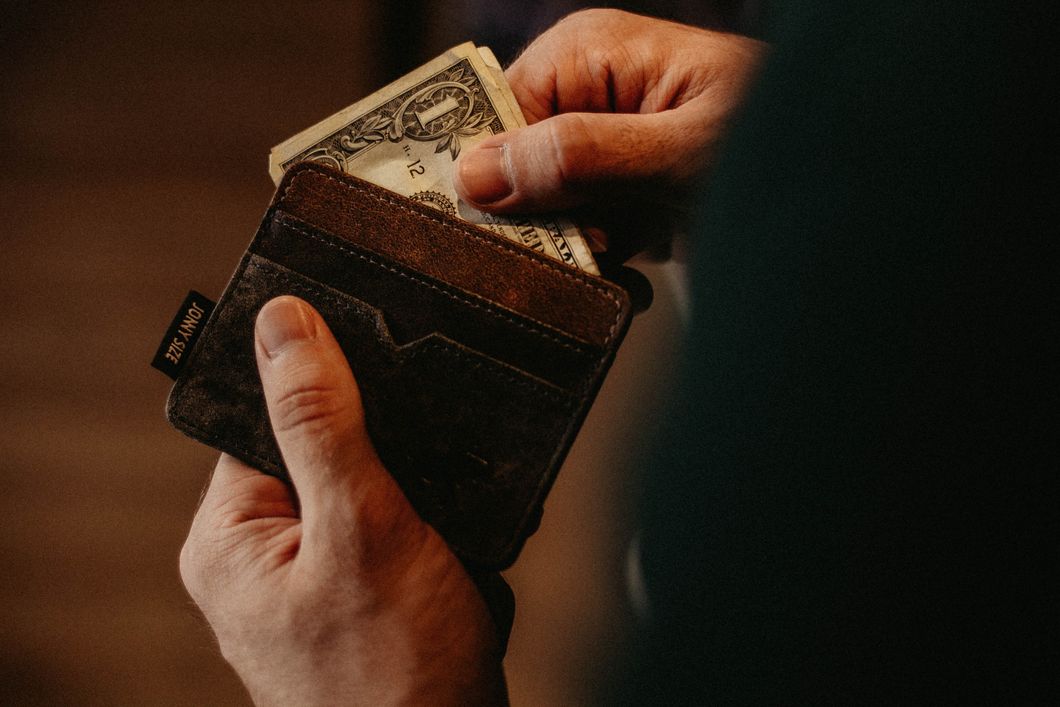I get a beep on my phone and check my notifications. "… has completed your Venmo request." I put away my phone and knock on the door to the business office picking up my paycheck. To the average college student, the first transaction seems normal. The second seems antiquated and foreign. Who still picks up a paycheck? Why not do direct deposit?
It seems inevitable at this point that we will be moving towards a cashless society, fulling integrating things like Venmo, cards, and mobile devices instead of our paper currency. There are countries, like Sweden, who are pulling ever so closer to that station. However, sometimes, I can't help but wonder what happens to the people who take the paper avenue.
Not only are we moving towards a cashless society, we are also moving towards a paperless society. Everywhere, there is a push to go paperless, from banks to bill companies to any green effort. Everything is being pushed online. I completely understand the ease and efficiency of a cashless/paperless society. I can get all my textbooks online, communicate with others instantaneously, pay my bills and other people with the tap of a touchscreen, and more. And it's so much easier because it's all right there on one or two devices. It's also safer in the sense that you can cancel transactions, close accounts, and don't have the fear of being robbed of cash.
But what about those who prefer the other system, or who are excluded from the new system? Are we forgetting them? My parents always prefer to have paper and paper trails, even if they're in the minority. Some people don't have bank accounts, which means that they rely solely on cash, whether they just choose to not or they can't maintain the minimum balance. Others can't afford the devices that would allow them to pay by mobile. The groups that might be excluded include the poor, the elderly, or immigrants. By making a push to eradicate cash, these groups can become farther marginalized in society as their way of life is being edged out.
Even without the overarching theme of exclusion, there are daily problems that can arise. What happens if you are trying to pay for something and you lose your network connection or your phone dies? How are you supposed to pay then? What if you lose your password? Are you compromising yourself by having all of your private, important financial information on a single thinly protected device that can easily be stolen or lost? What about losing the paper trail that only exists as long as you have a wifi signal or data? What if you type in the wrong amount and never notice that you overpaid someone? What if you don't think a store is safe enough to use a credit card or mobile transaction with?
For me, I still pick up a paper check. I still collect every receipt that I can get. I still keep a log of all my purchases. I edit all of my essays and writing on paper. I do my best work with a pen and paper. But maybe I'm strange because I still read the terms of service, privacy statements, and all points of a contract.
Regardless if my habits are strange or individual preference against the paperless/cashless system will give way to the popular, or maybe just louder, opinion, there is still merit in exploring the problems with the structure. There are many groups that are being excluded in the push that is being incentivized by the government and big banks. There are still daily problems that I queried above. I'm not against the idea, but I find that there are numerous drawbacks that must be addressed. For now, I think that an opt-out option should be available and no business should require mobile or card payments. We need to slow down, examine, and rectify the negatives, even though the positives will inevitably win out.






















 sunrise
StableDiffusion
sunrise
StableDiffusion
 bonfire friends
StableDiffusion
bonfire friends
StableDiffusion
 sadness
StableDiffusion
sadness
StableDiffusion

 purple skies
StableDiffusion
purple skies
StableDiffusion









